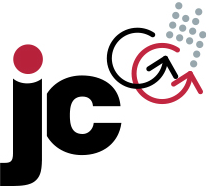Income and assets
Income and assets
When you apply for Bürgergeld, not only your income and assets are taken into account, but also those of all members of your benefit community.
Below you will find detailed information on what income, assets, items, etc. are involved.
In principle, income includes all income in money or values that can be measured in money that you and the members of your benefit community earn during the authorisation period, e.g:
- Income from an employment relationship
- Income from self-employment
- Additional income from a mini-job
- Back pay from previous periods or terminated employment relationships
- Christmas and holiday bonuses
- Special or performance bonuses
- Shift allowances and overtime pay
- Unemployment benefit or sick pay
- Tax refunds
- Maintenance payments
- Housing benefit/rent allowance
- Maternity benefit that was not offset against your parental allowance (under the Bürgergeld Act, this is no longer this is no longer counted as income since 01.07.23)
- Parental allowance over €300 per month or €150 if parental allowance is extended
- Child benefit
- Capital and interest income, distributions or shareholdings
- Income from letting and leasing
- Homeowner's allowance (provided it has not been assigned to the financing bank)
- Lottery winnings
- Other income (including one-off income)
Current income is taken into account for the month in which it is received in your account.
A basic allowance of €100 applies to monthly earned income for people entitled to benefits who are gainfully employed. The following additional allowances apply to earned income:
- 20% allowance for monthly income between €100 and €1,000
- 10% allowance for a monthly income of over €1,000 and up to €1,200 (the allowance limit increases to €1,500 for employable beneficiaries with at least one minor child)
Further information on the allowances is regulated in § 11b SGB II.
Changes from 01/07/2023 as part of the Bürgergeld Act:
From 01.07.2023, the allowance for earned income that is between €520 and €1,000 per month will be increased to 30% of income.
For earned income of pupils, students, trainees and federal volunteers and voluntary service volunteers, the tax-free allowance will be increased to the mini-job limit (520 euros per month) from 1 July 2023. This also applies during a three-month transition period between leaving school and starting training.
Pupils can earn unlimited additional income during the holidays.
In the case of voluntary work, expense allowances of up to 3,000 euros per calendar year will not be counted as income from 1 July 2023.
One-off income (e.g. severance payments, inheritances, gifts of money, lottery winnings) is taken into account in the month in which it is available to you.
If you have already received benefits from the Groß-Gerau District Municipal Jobcenter for this month, the one-off income will be taken into account in the following month.
If your one-off income is so high that your entitlement to unemployment benefit II / Bürgergeld would be cancelled as a result, the one-off income will be divided evenly over a period of up to six months and a corresponding partial amount will be taken into account.
Changes from 01.07.23 as part of the Bürgergeld Act:
With the introduction of Bürgergeld, a distinction is no longer made between ongoing and one-off income. Income is to be taken into account in the month in which it is received. It will only be split over 6 months in the case of back payments.
All assets that you and the members of your benefit community own must be declared as assets, e.g:
- Cash
- bank deposits
- real estate
- Shares and savings bonds
- building society savings contracts
- Life insurance policies
- jewellery
- valuable cars
- etc.
Assets that are not taken into account include
- reasonable household effects
- an appropriate car (7,500 euros current value) for each person of working age living in the community of need
- an owner-occupied property of an appropriate size or a corresponding owner-occupied flat
Changes from 01/01/2023 as part of the Bürgergeld Act:
From 01/01/2023, there will be a one-off so-called waiting period for the consideration of existing assets when determining needs. This is 12 months. During this period, assets of up to €40,000 for the first person in the community of need and assets of up to €15,000 for each additional person in the community of need will not be taken into account.
In addition, owner-occupied residential property, regardless of size and value, is not included in the benefit calculation during this period.
At the end of the waiting period, a standardised, age-independent asset allowance of €15,000 applies for each person in the benefit community.
An owner-occupied property with a living space of up to 140 square metres (4 persons, plus a further 20 square metres for each additional person) or an owner-occupied flat of up to 130 square metres (4 persons, plus a further 20 square metres for each additional person) will continue to be disregarded.
Among other things, reserves for the retirement provision of self-employed persons, irrespective of the form of investment, are further protected to a legally defined amount.
